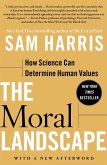"You read with a rising sense of despair and outrage, and you finish it as if awakening from a nightmare only Kafka could have conceived."--Christopher Lehmann-Haupt, New York Times
David Baltimore won the Nobel Prize in medicine in 1975. Known as a wunderkind in the field of immunology, he rose quickly through the ranks of the scientific community to become the president of the distinguished Rockefeller University. Less than a year and a half later, Baltimore resigned from his presidency, citing the personal toll of fighting a long battle over an allegedly fraudulent paper he had collaborated on in 1986 while at MIT. From the beginning, the Baltimore case provided a moveable feast for those eager to hold science more accountable to the public that subsidizes its research. Did Baltimore stonewall a legitimate government inquiry? Or was he the victim of witch hunters? The Baltimore Case tells the complete story of this complex affair, reminding us how important the issues of government oversight and scientific integrity have become in a culture in which increasingly complicated technology widens the divide between scientists and society.
David Baltimore won the Nobel Prize in medicine in 1975. Known as a wunderkind in the field of immunology, he rose quickly through the ranks of the scientific community to become the president of the distinguished Rockefeller University. Less than a year and a half later, Baltimore resigned from his presidency, citing the personal toll of fighting a long battle over an allegedly fraudulent paper he had collaborated on in 1986 while at MIT. From the beginning, the Baltimore case provided a moveable feast for those eager to hold science more accountable to the public that subsidizes its research. Did Baltimore stonewall a legitimate government inquiry? Or was he the victim of witch hunters? The Baltimore Case tells the complete story of this complex affair, reminding us how important the issues of government oversight and scientific integrity have become in a culture in which increasingly complicated technology widens the divide between scientists and society.
Dieser Download kann aus rechtlichen Gründen nur mit Rechnungsadresse in A, D ausgeliefert werden.









